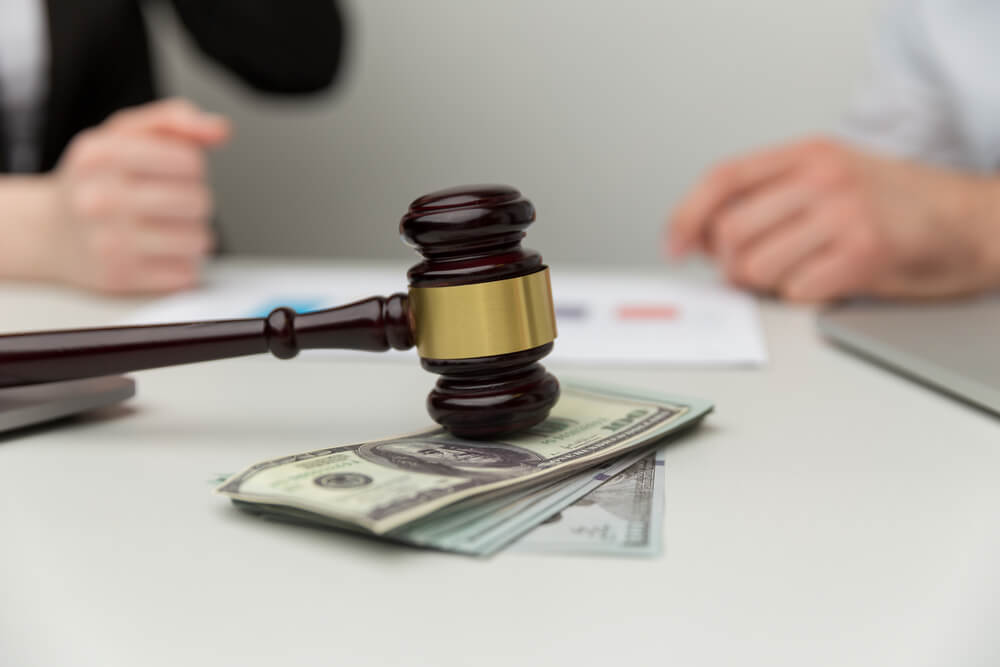Exploring Post-Divorce Responsibilities Regarding Legal Fees and Financial Strategies
Knowing How Your Actions in the Divorce Process Can Affect Collecting Attorney’s Fees is Crucial. Equip Yourself with the Necessary Knowledge to Protect Your Interests During This Challenging Time with the Support of Our Attorneys
 If you find yourself involved in a divorce, you may feel overwhelmed by the unknowns, particularly your legal and financial questions. Can you afford to split your assets and support yourself? How much will the entire divorce process cost? Can your spouse be ordered to pay your legal fees? Could you be ordered to pay your spouse’s legal fees? The answers to these questions are always dependent on your unique circumstances and how your divorce process plays out.
If you find yourself involved in a divorce, you may feel overwhelmed by the unknowns, particularly your legal and financial questions. Can you afford to split your assets and support yourself? How much will the entire divorce process cost? Can your spouse be ordered to pay your legal fees? Could you be ordered to pay your spouse’s legal fees? The answers to these questions are always dependent on your unique circumstances and how your divorce process plays out.
Understanding your options and how your actions during the divorce process can impact your ability to collect attorney’s fees from your spouse is very important. As the old adage goes, one day, this too shall pass, but until then, it is critical that you equip yourself with the knowledge and guidance you need to protect your interests during this difficult process.
Basics of Divorce Lawyer Fees
Generally speaking, the legal costs associated with a divorce involve court fees and attorney fees. Most divorce lawyers charge an hourly rate for their services and their rates will often vary based on their experience and reputation. It is typical for your lawyer to collect a retainer or a lump sum payment when you retain their services, which they will keep in their attorney-client trust account and deduct from as the fees are billed and earned. Your attorney-client engagement agreement will usually stipulate when the retainer must be replenished. It is common for clients to be issued a statement of their bill on a monthly basis.
Calculating the Hours to Determine Attorney’s Fees
The amount of hours your attorney will need to spend working on your case ultimately depends on the complexity of your case and how many issues are contested between you and your spouse. If you and your spouse do not have children, you do not own a house together, neither of you is seeking alimony, and you are in agreement on how to divide your assets, then the divorce process should be more streamlined for you. If, on the other hand, you must file for a protective order against your spouse, who is seeking joint custody of your children, and you need to petition for both child support and alimony while expecting that there will be a lot of conflict during the divorce process, then you can likely expect that your attorney will need to devote much more time to resolving these issues and advocating on behalf of you and your children.
Perhaps you believe that your spouse has been hiding assets prior to or during the divorce, and your case requires forensic analysis to determine the total value of the marital estate and locate all marital assets. This is another example of a more complex case that will involve more work for your lawyer and contribute to higher legal fees. While the timeline of proceedings can be influenced by intentional or unintentional delays by the parties, when you retain an attorney, they can provide you with an idea of the range of fees you might expect to pay based on the known issues involved in your case.
Determinants of Attorney Fee Awards in New Jersey
Under New Jersey law, N.J.S.A. 2A: 34-23, a judge in a family law case can order one spouse to pay the attorney fees of the other spouse when the circumstances render the decision “reasonable and just”. Several different factors may be relevant in such a determination, with the respective financial situations of each party being most significant. If one party has a high income and the other spouse does not work, the court may award attorneys fees to the latter in order to ensure that they have adequate representation in the court proceedings.
Beyond financial need, if the judge determines that one party is intentionally or unreasonably creating delays or complications in the case, they may find reason to order that party to pay the attorney fees of the other spouse. Particularly if the court finds that one party has acted in bad faith during the proceedings in a way that has contributed to higher attorney fees for their spouse, the court may order the bad faith actor to pay these attorneys fees for their spouse. For example, if one spouse knowingly makes false accusations against the other spouse in order to petition for full custody of their children or petitions the court for supervised visitation for the other parent based on false allegations for the purpose of hurting, harming, or controlling the situation in bad faith, the court may order that party to cover the attorney fees of the other spouse associated with responding to these bad faith actions. Of course, in addition to this, the court will likely deny petitions made in bad faith, and the bad faith actor may face additional penalties from the court.

Discuss the Details of Covering Attorney Fees in Your Divorce with Our Experienced Team of Lawyers in NJ
If you are concerned about how you will be able to fight a high-earning spouse in court, rest-assured that there are options for you. Depending on the financial circumstances of you and your spouse, your attorney can petition the court to order your spouse to pay your attorney fees from the very beginning of your divorce proceeding. Even if your divorce has already begun or if your spouse has petitioned for a post-judgement modification of an alimony order, child custody order, or child support order, you may still be able to request attorney fees if the circumstances would render such a decision reasonable and just.
To get more information about the cost of a NJ divorce proceeding and whether some or all of these fees could be covered by your soon-to-be ex-spouse, please contact the talented team of divorce lawyers at Bronzino Law Firm today to set up a free consultation about your case. We assist clients with complex, highly contentious, and high net worth divorce cases throughout Ocean and Monmouth County, including Manasquan, Howell, Lavallette, Sea Bright, Asbury Park, Long Branch, Point Pleasant, and Jackson. Call (732) 812-3102 for a free consultation.







